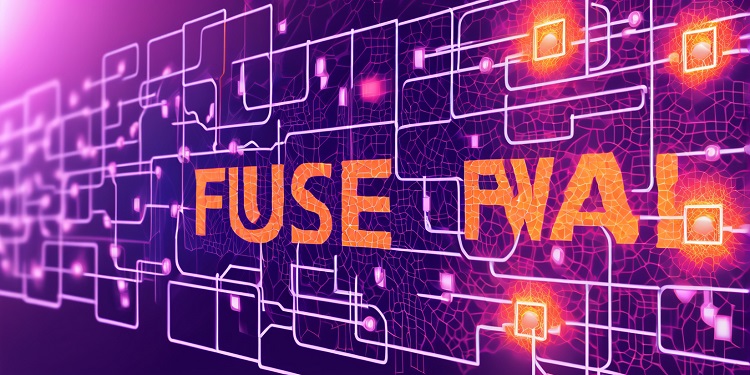The exponential progress predicted by Moore’s Law continues to shape technological advancements, with artificial intelligence now taking center stage. As AI adoption grows, traditional industries, including finance, are undergoing significant transformations. One of the most notable shifts is the emergence of Deobanking, a decentralized on-chain banking model that integrates AI and blockchain to redefine financial ecosystems.
Unlike traditional banks and digital-first neobanks, Deobanking operates entirely on-chain, eliminating reliance on legacy financial frameworks. This approach removes intermediaries, enhances transparency, and improves transaction efficiency and cost-effectiveness. By bridging decentralized finance (DeFi) with real-world payment systems, Deobanking offers a new paradigm in financial services.
Decentralization as the Core of Deobanking
Blockchain technology serves as the foundation of Deobanking by ensuring decentralization, security, and transparency. Through smart contracts, banking functions such as loans, deposits, interest payments, and asset management are automated, reducing the need for third-party intermediaries. This framework also prioritizes user privacy by minimizing external data exposure.
A key advantage of on-chain banking is its ability to offer a decentralized, self-custodial experience. Under traditional regulatory frameworks, financial institutions can impose account freezes and withdrawal restrictions, particularly on custodial wallets, limiting users’ access to their own funds. These issues become more complex in cross-border transactions, where jurisdictional challenges can create additional obstacles. By allowing non-custodial ownership, Deobanking ensures that customers retain full control over their assets without external interference.
Moving Beyond Traditional Financial Systems
Deobanking providers intend to move away from conventional financial transaction mechanisms such as SWIFT and chartered banking partnerships. Instead, this model will be stablecoin-native, enabling swift, low-cost, and globally accessible transactions. While fiat currency will still play a role in the ecosystem, its presence will be limited to on-ramp and off-ramp functionalities.
WeFi’s Deobank, the first operational Deobanking initiative, plans to use a decentralized ZK Payment Engine. This technology will facilitate secure transaction rollups without revealing sensitive personal data. By offering both traditional account top-ups and non-custodial wallet integration, WeFi’s Deobank aims to strike a balance between security, convenience, and financial autonomy.
AI Enhancing Financial Services
Deobanking is not merely about shifting financial operations onto the blockchain; it also harnesses AI to create a more intelligent and efficient banking ecosystem. With vast amounts of blockchain data at its disposal, AI can automate core financial processes and personalize user experiences, making the system more accessible and user-friendly.
One of the primary challenges facing financial inclusion is the Know Your Customer (KYC) process, which remains a significant hurdle in providing banking access to the unbanked. Currently, more than 1.4 billion individuals lack access to financial services due to stringent banking requirements, distrust in financial institutions, or inadequate infrastructure.
WeFi’s Deobank intends to explore AI-driven solutions for streamlining KYC processes. As the first major attempt at integrating AI into identity verification, the regulatory implications remain under review. However, with the accumulation of data and precedent cases, AI-driven verification could ultimately lower banking eligibility requirements, expediting onboarding procedures while reducing operational costs.
Strengthening Security and Fraud Prevention
AI is also expected to play a crucial role in enhancing security and fraud detection within the Deobanking framework. By analyzing pseudonymous transaction data on-chain, machine learning algorithms can identify and flag suspicious activities in real time. This proactive approach strengthens security while reducing the costs associated with traditional fraud prevention measures.
The combined efficiency of AI and blockchain extends beyond security and KYC enhancements. AI-powered tools can optimize DeFi investment strategies, providing users with tailored financial guidance. By analyzing individual risk preferences and investment behaviors, AI can recommend Web3 investment opportunities, facilitate no-code automated execution contracts, and refine transaction fee structures. This capability enables even crypto novices to explore high-yield DeFi options with improved risk management.
A New Era in Banking
Throughout history, the financial sector has continuously evolved in pursuit of greater efficiency in terms of time, cost, and human resources. While neobanks addressed the demand for digital banking by eliminating the need for physical branches, they remained tethered to traditional financial structures.
WeFi’s Deobank represents a step further in financial innovation, introducing an ecosystem that prioritizes decentralization, automation, and security. By integrating AI with blockchain, Deobanking aims to create a more inclusive and intelligent financial system that serves a global audience without the constraints of conventional banking limitations.









